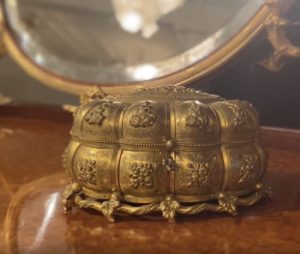Ferdinand Barbedienne
A Pair of Gilt and Patinated Bronze Vases Mounted as Lamps
£14,000
A Pair of Néo-Grec Parcel-Gilt Patinated Bronze Vases Mounted as Lamps, Cast by Ferdinand Barbedienne, from the Model by Henry Cahieux. Each vase is...
Dimensions
Height: 67 cm (27 in)Width: 20 cm (8 in)
Profondeur : 20 cm (8 in)
Description
A Pair of Néo-Grec Parcel-Gilt Patinated Bronze Vases Mounted as Lamps, Cast by Ferdinand Barbedienne, from the Model by Henry Cahieux.
Each vase is finely cast with herm-headed handles flanking a slender elongated neck above a tapering body relief-cast with classical figures and anthemion, raised on a square Belgian black marble bases. Now mounted as Lamps.
Cast signatures ‘F. BARBEDIENNE FONDEUR.’ and ‘HENRY CAHIEUX’.
This model of vase was exhibited by Barbedienne at the 1855 Paris ‘Exposition Universelle’ to great acclaim. They were illustrated in the Exhibition Catalogue alongside a classical revival tripod. The pair of vases together with another were described as follows: The two vases (…) selected from many exquisite and beautiful decorative works in bronze from the atelier of Messrs. Barbedienne & Cie, of Paris; they are formed, and ornamented, on the best models of the ancient Greek.
The tall slender shape of the vases with their elongated necks and a flaring mouth, in the form of anamphora with two handles, is derived from ancient Greek Loutrophoroi, which were ceremonial vases used to hold water during marriage rituals.
The Parisian sculptor Henry Cahieux (1825-1854) is recorded as having supplied the celebrated Barbedienne foundry with exclusive master models for casting in bronze including, bas-reliefs in the néo-grec, Egyptian and Japanese styles. He exhibited at the Salon between 1850 and 1853, his work always cast by Ferdinand Barbedienne.
France, vers 1870.
Date
Circa 1870
Origine
France
Moyen
Bronze patiné
Signature
Cast signatures 'F. BARBEDIENNE FONDEUR.' and 'HENRY CAHIEUX'.
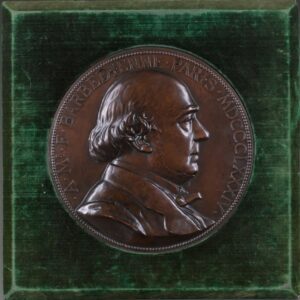
Ferdinand Barbedienne (6 août 1810 - 21 mars 1892) était un métallurgiste et fabricant français, connu comme fondeur de bronze.
Fils d'un petit paysan du Calvados, il débute sa carrière comme marchand de papiers peints à Paris. En 1838, il s'associe avec Achille Collas (1795-1859), qui vient d'inventer une machine permettant de créer des répliques miniatures en bronze de statues. Ensemble, ils lancent une activité de vente de miniatures de statues antiques provenant de musées de toute l'Europe, démocratisant ainsi l'art et le rendant plus accessible aux ménages. À partir de 1843, ils étendent leur champ d'action en reproduisant les œuvres d'artistes vivants et se diversifient également en fabriquant des objets domestiques émaillés. Avec le déclenchement de la guerre franco-prussienne en 1870, l'entreprise doit brièvement se reconvertir dans la fabrication de canons en raison de la pénurie de métaux, mais reprend ensuite ses activités. Après sa mort en 1892, Barbedienne est enterré au cimetière du Père-Lachaise et l'entreprise est reprise par son neveu Gustave Leblanc jusqu'en 1952.
Parmi les principaux artistes reproduits par la firme figurent Antoine Louis Barye et Auguste Rodin.
Meyer, Jonathan. ‘Great Exhibitions, London – New York – Paris – Philadelphia 1851-1900’, Antique Collectors Club, (Woodbridge, UK), 2006; p.95-97, il. C15.
VOUS POUVEZ ÉGALEMENT AIMER
-
£12,000 Ajouter au panier
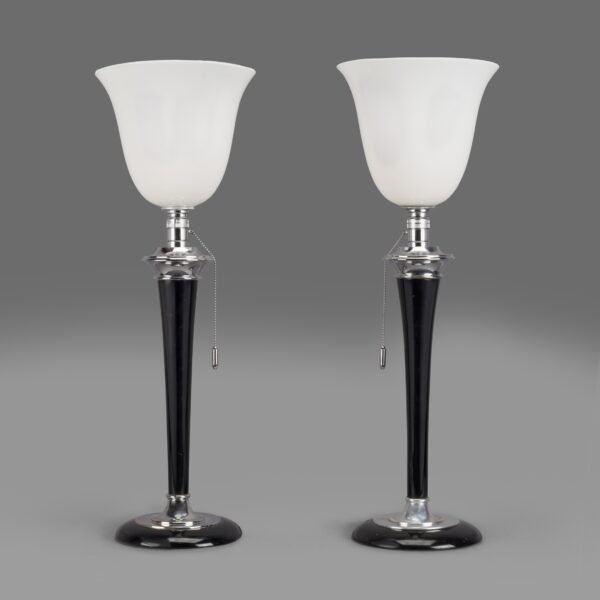
Compagnie des Lampes de Paris
Paire de lampes de table originales Art Déco 'Mazda'.
-
£4,500 Ajouter au panier
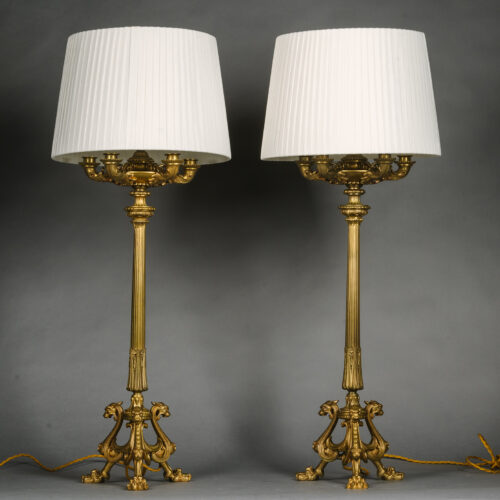
A Pair of Napoleon III Gilt-Bronze Five-Light Candelabra, Fitted As Lamps
-
£55,000 Ajouter au panier
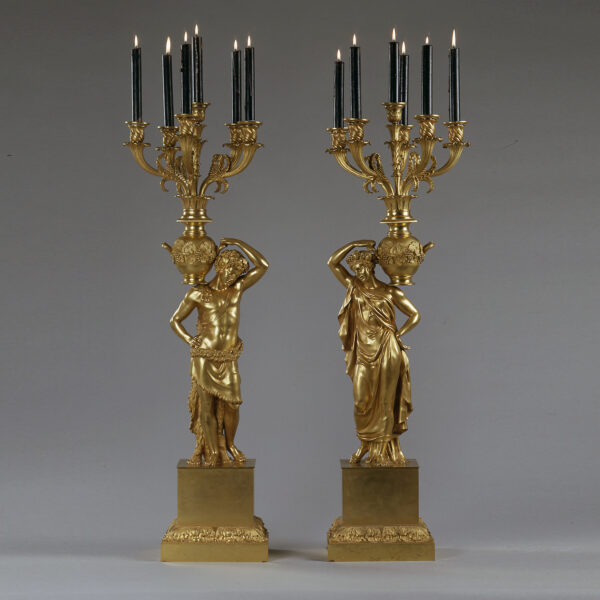
Magnifique paire de candélabres Empire en bronze doré à motifs figuratifs
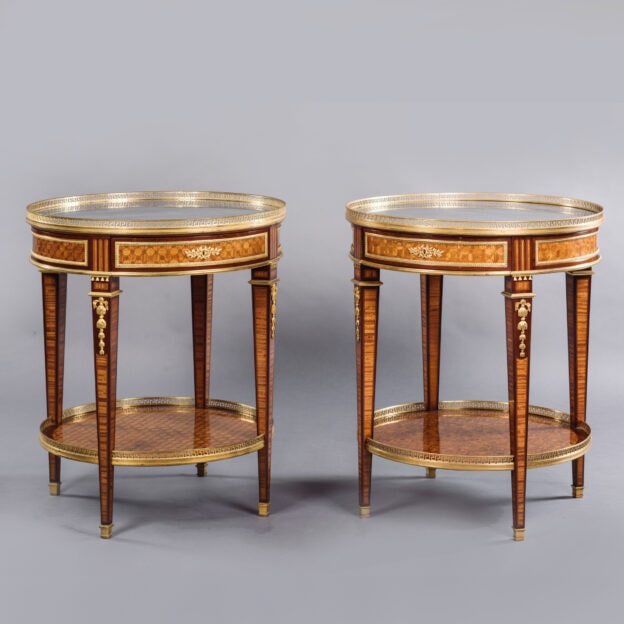
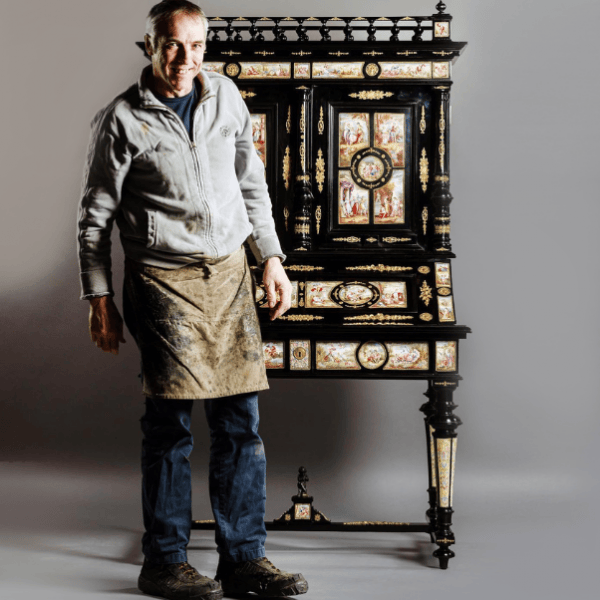
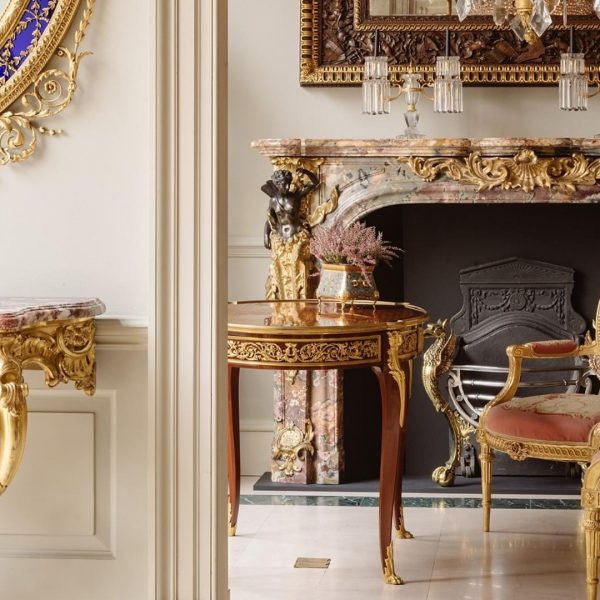
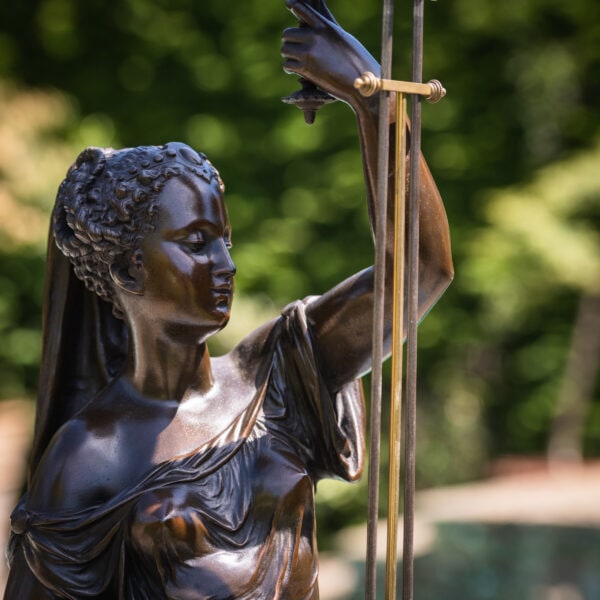
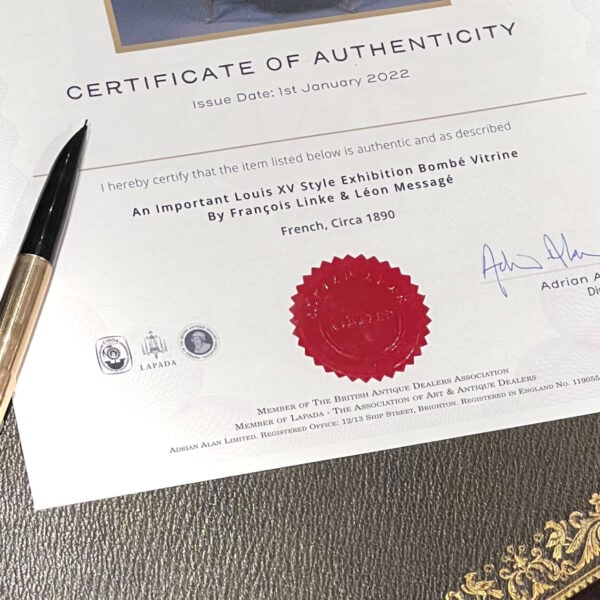
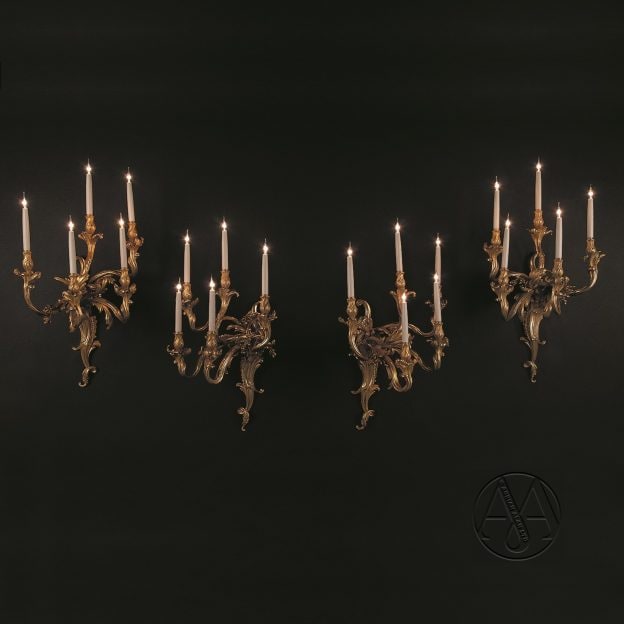
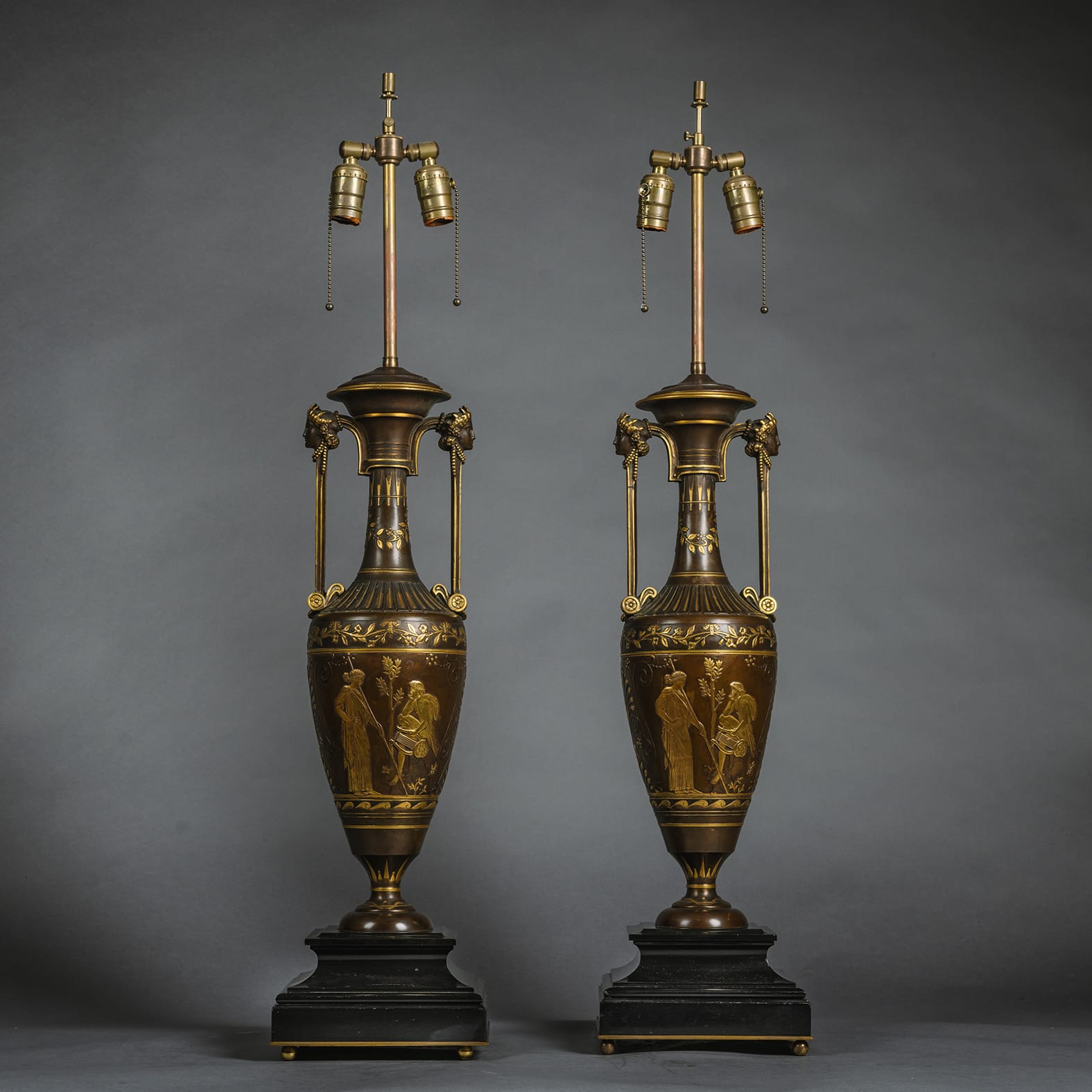
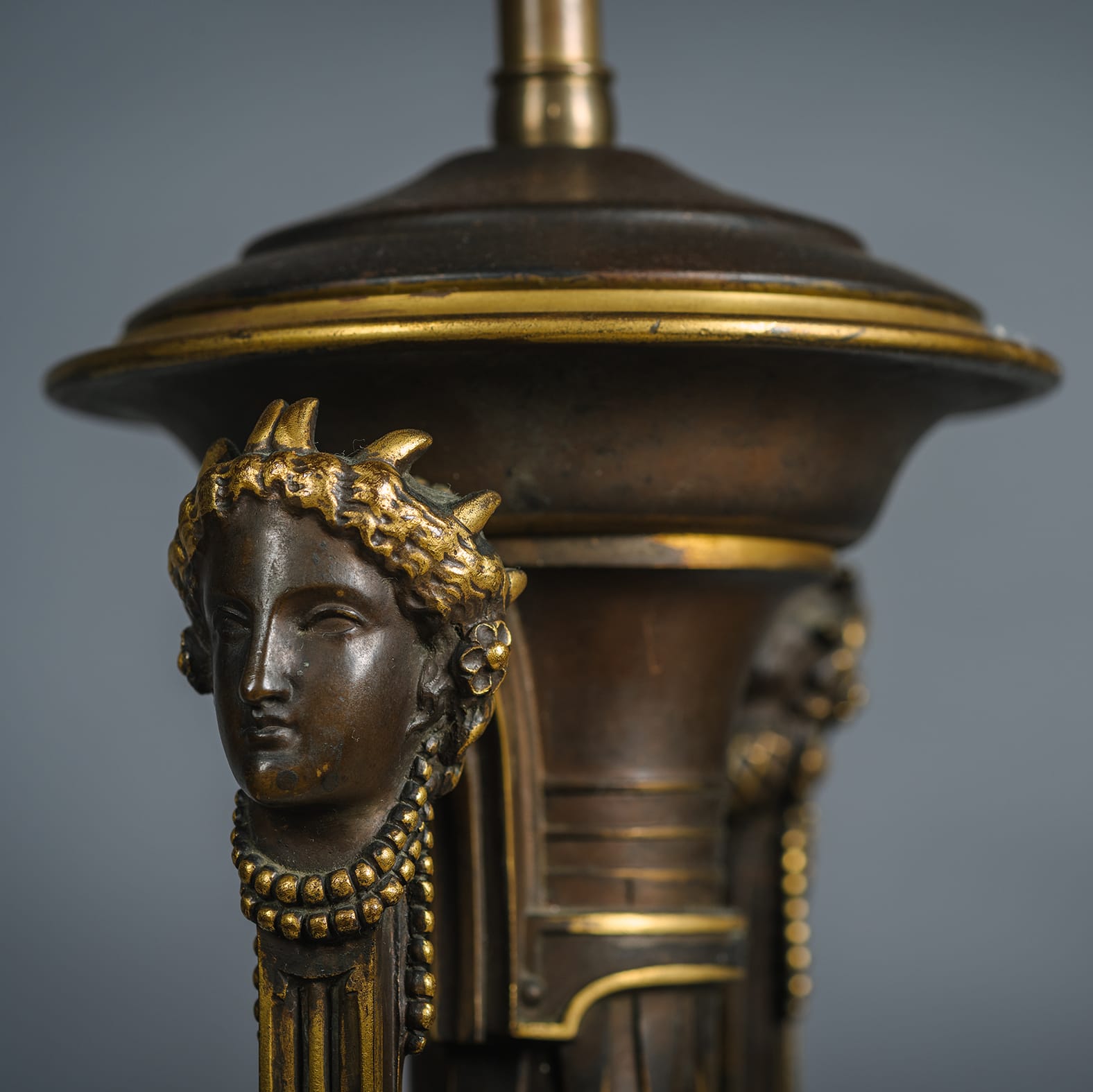
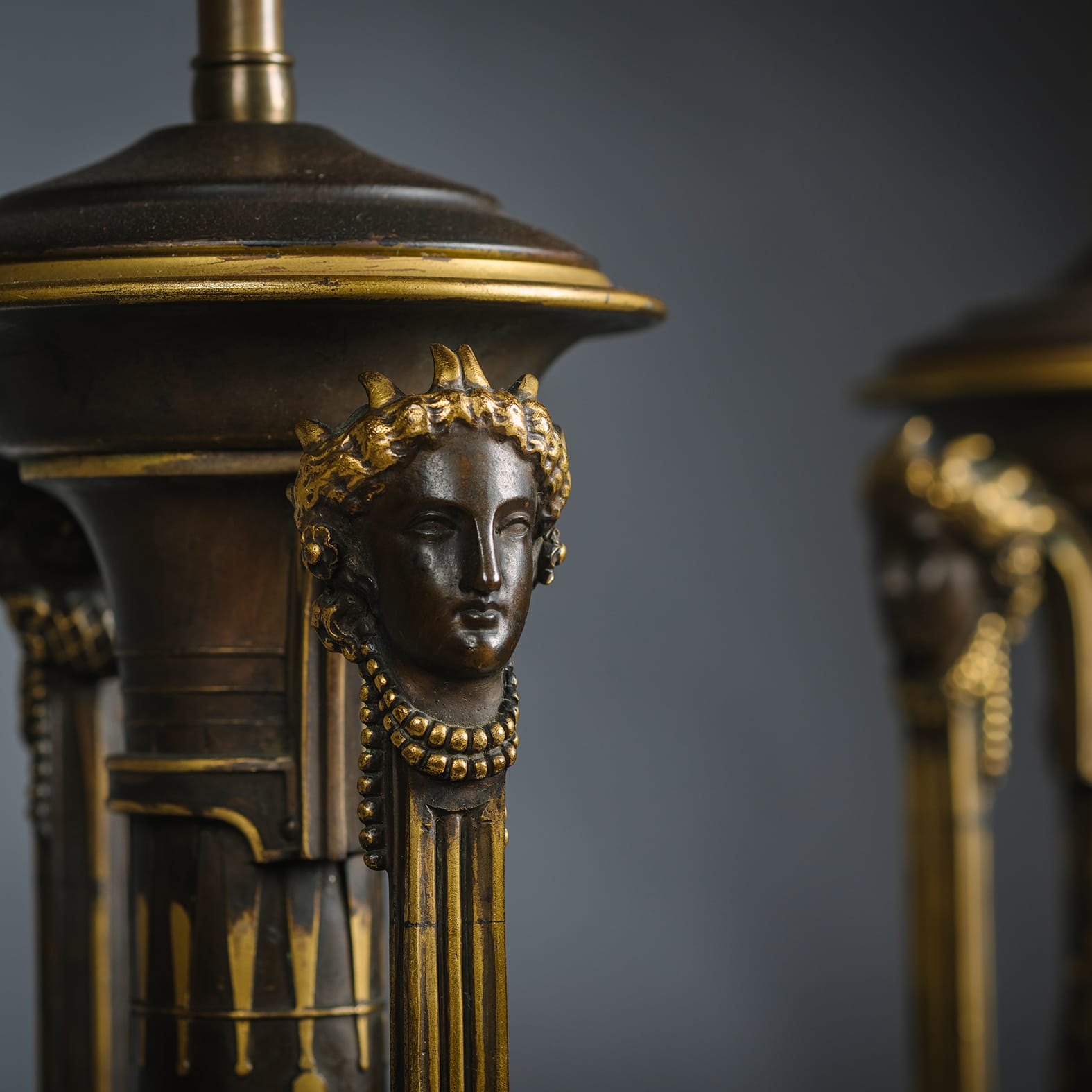
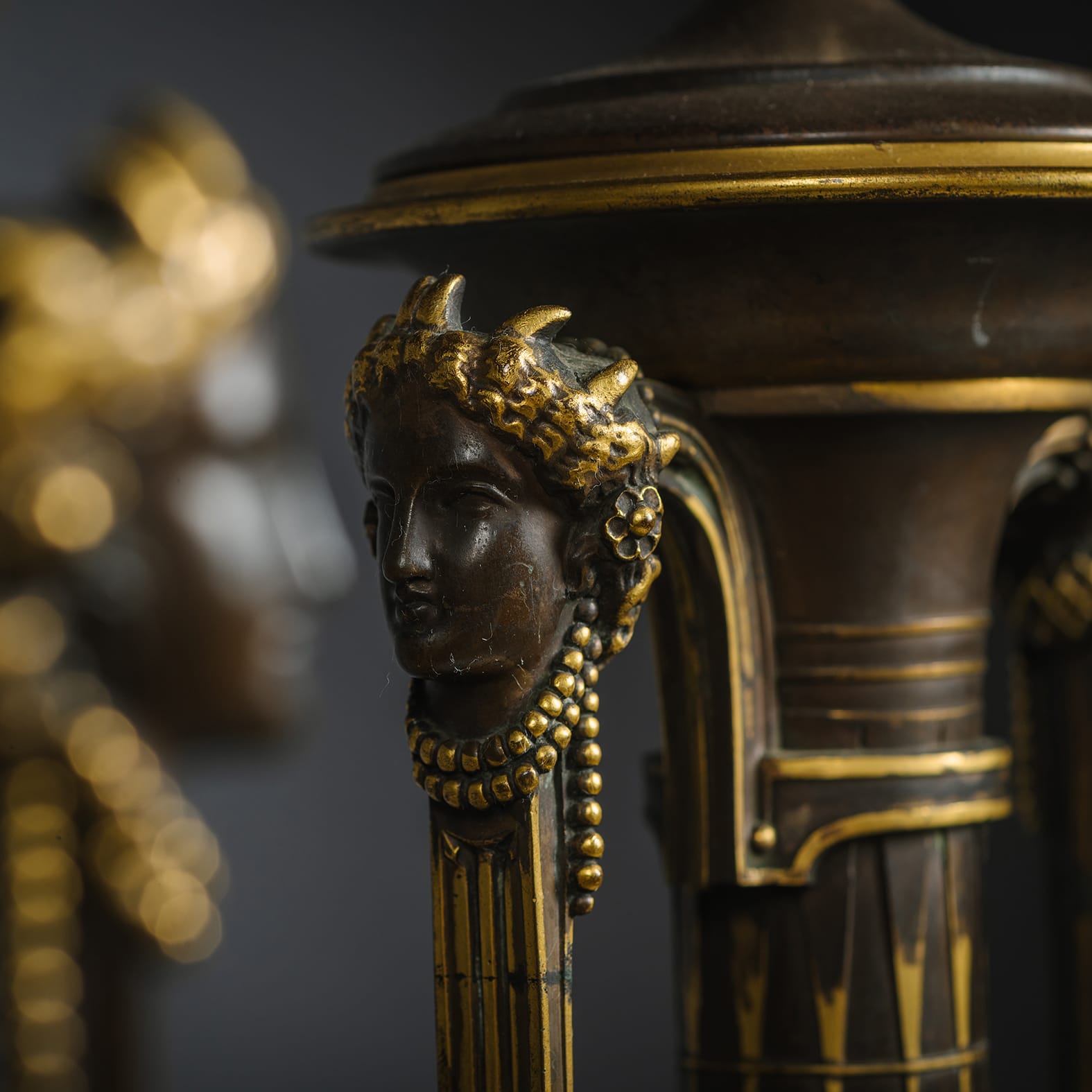
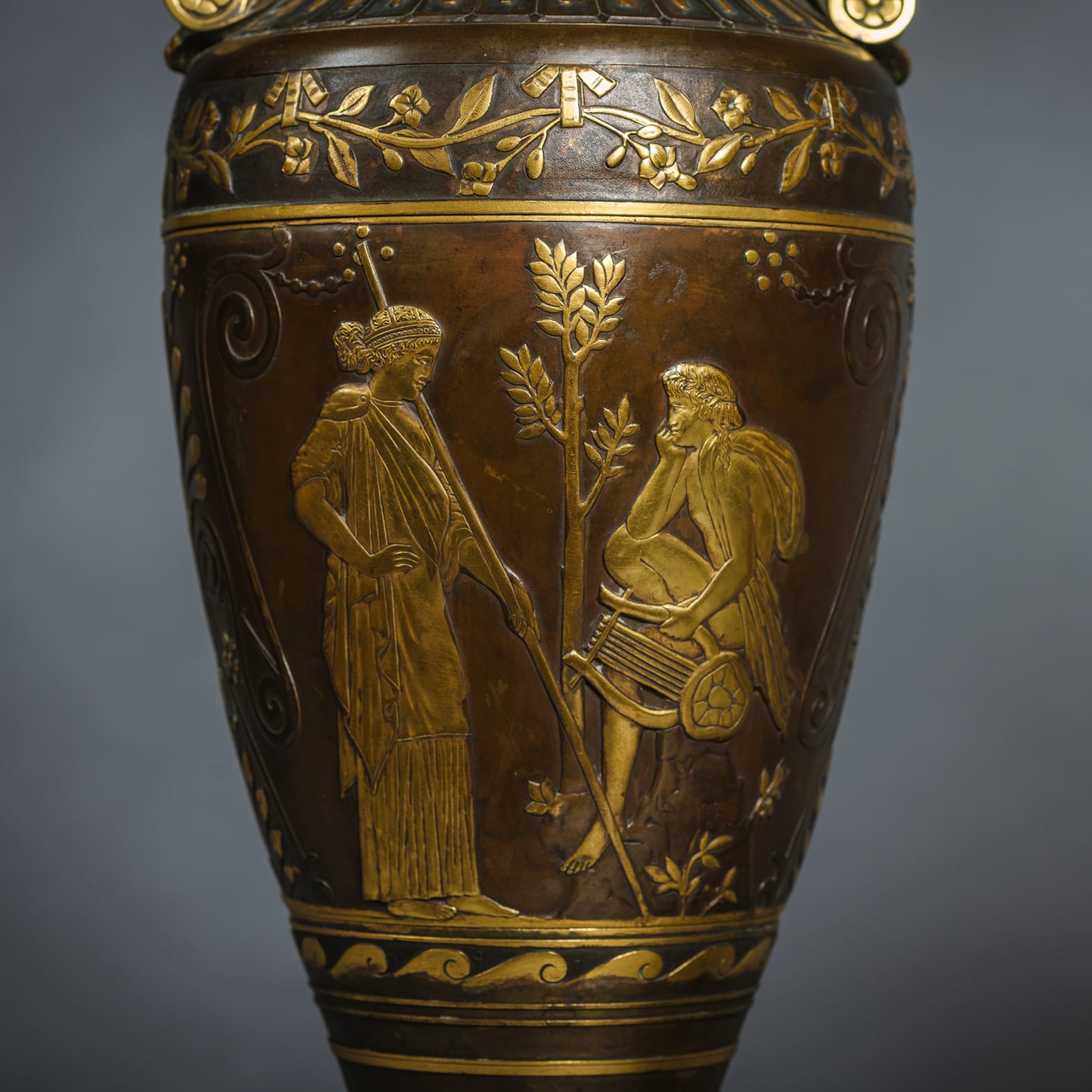
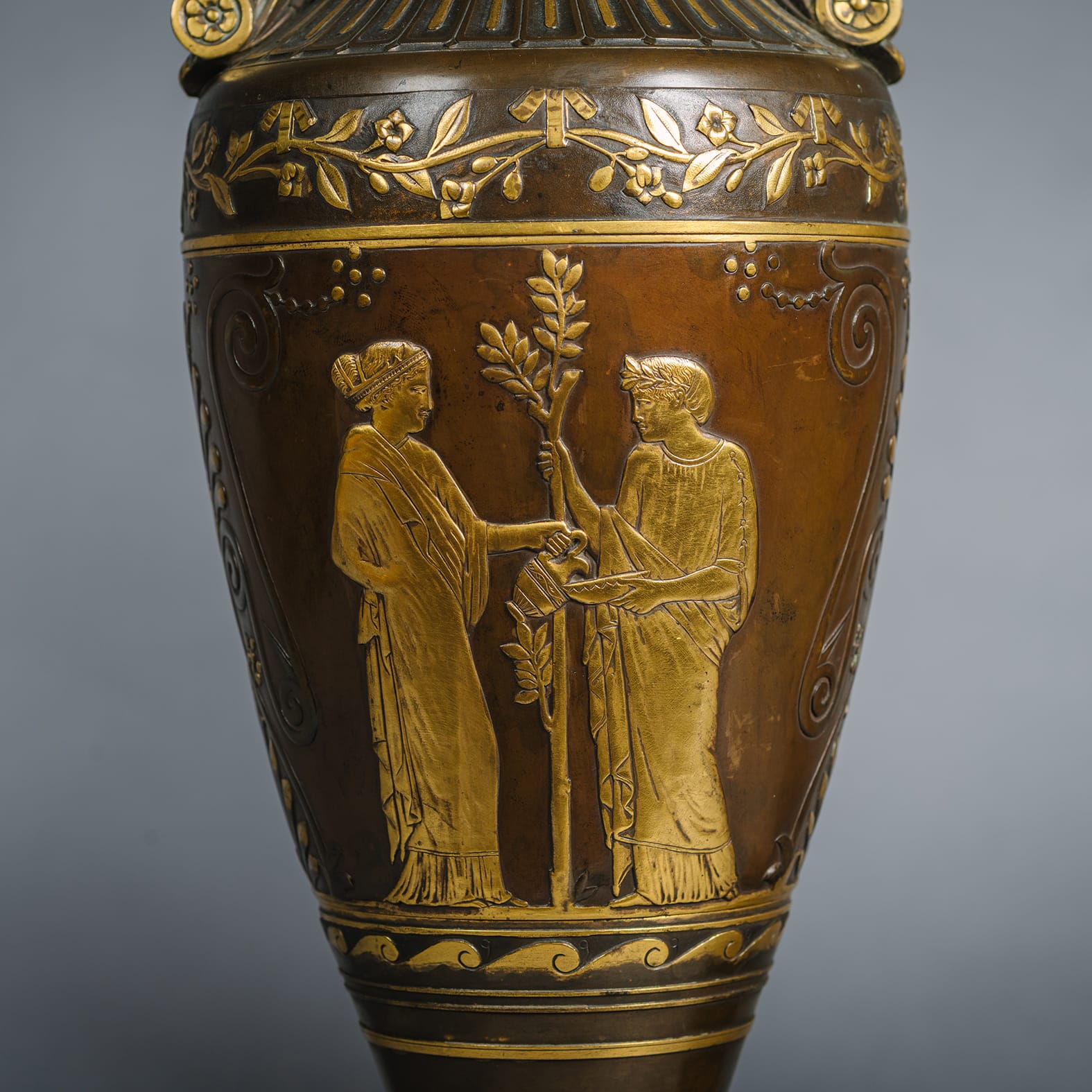
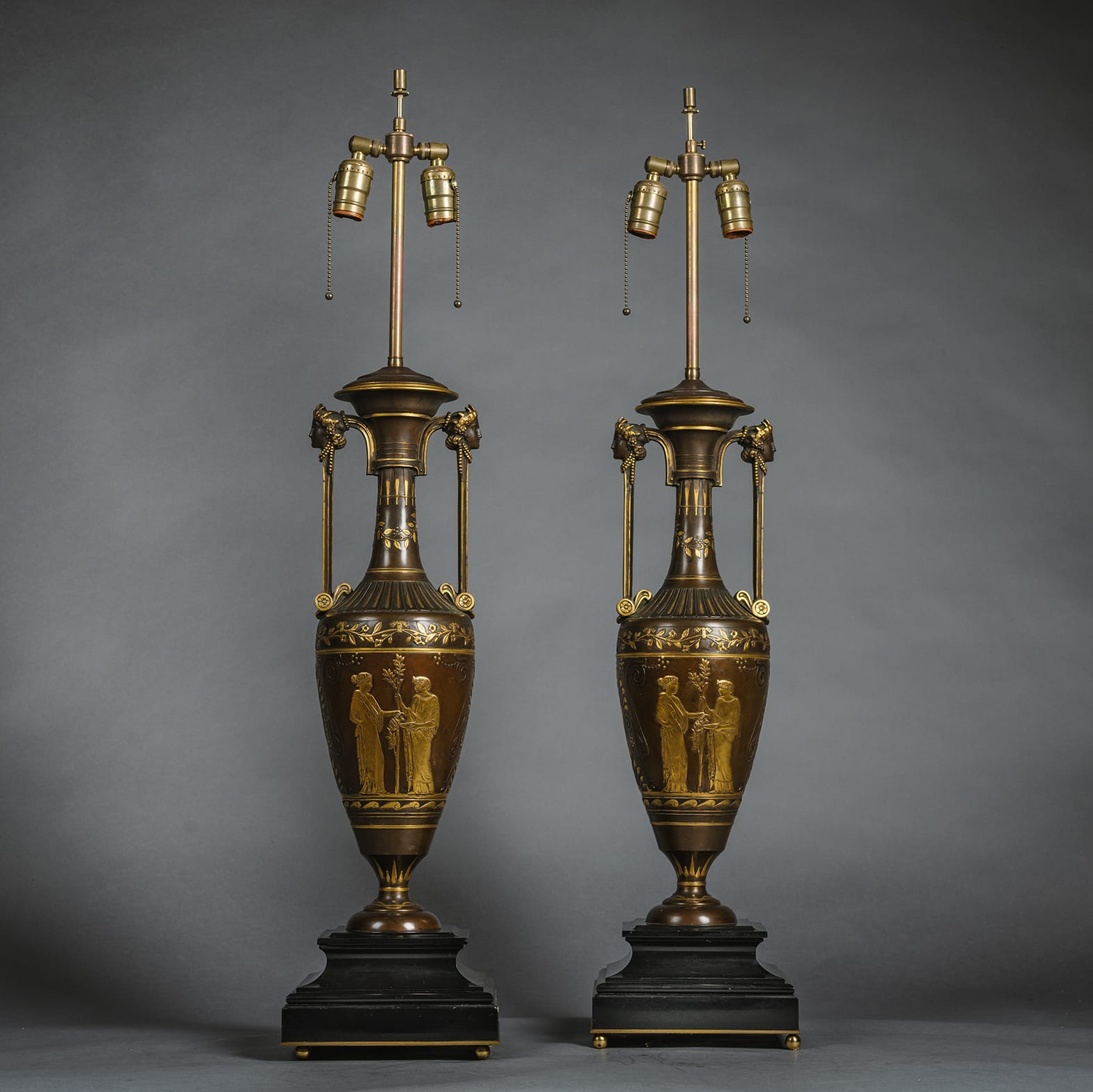

 Imprimer
Imprimer